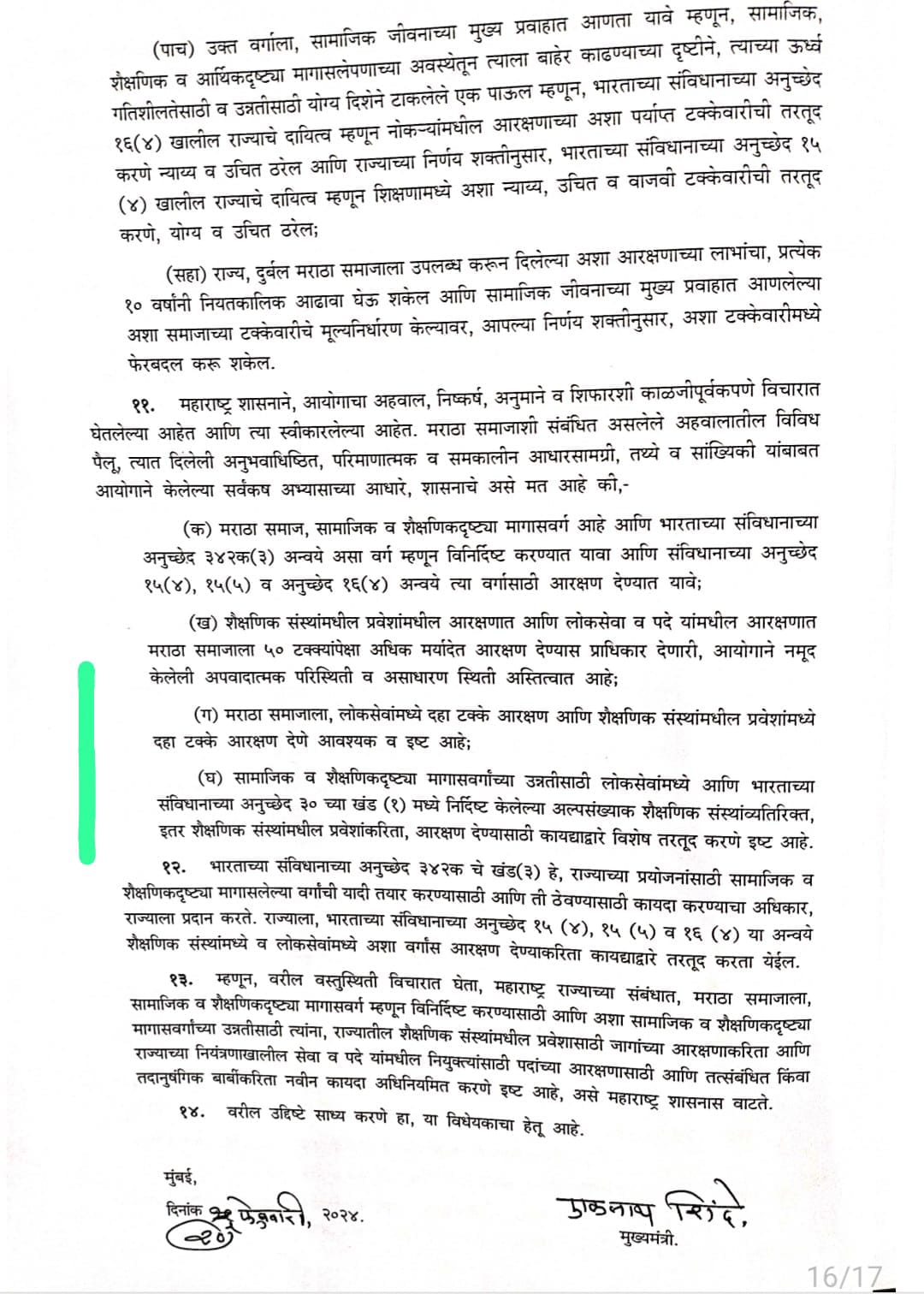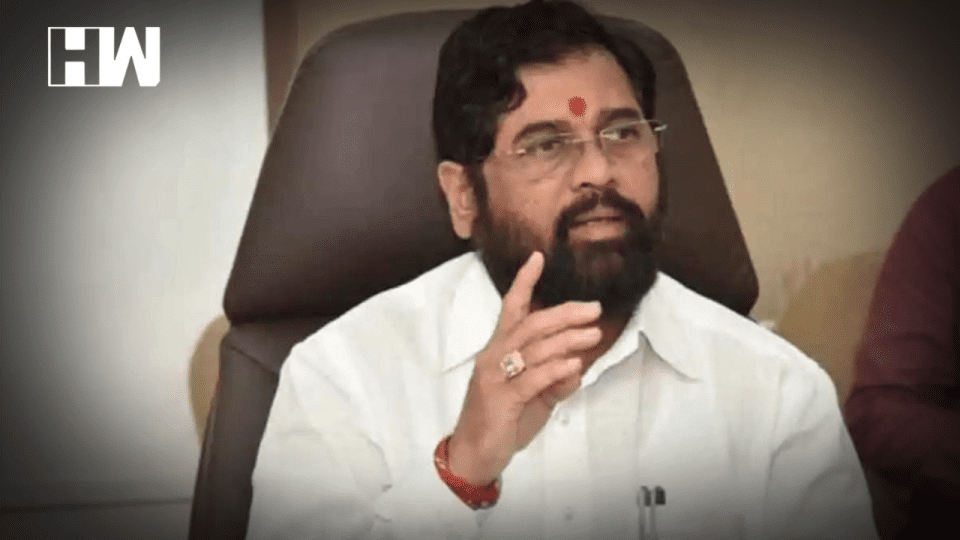Devendra Fadnavis led the government ahead of the state assembly election in 2019 and provided a 16% quota to the Maratha community. Though the Bombay High Court upheld it the quota was reduced to 13% in government jobs and 12% in education. However, the Supreme Court scrapped the Maratha quota in May 2021.
In a serious bid to lure the Maratha community ahead of the upcoming Lok Sabha election, the Maharashtra Government has proposed in the Socially and Educationally Backward Classes (SEBC) Bill 20224 a 10% quota in government jobs and education. This will be over and above the 50% quota limit imposed by the Supreme Court. The proposed quota benefits won’t be available in the minority education institutes.
With today’s proposal, the reservation currently available to various communities in Maharashtra rises to 72%, which includes the 10% quota provided to the Economically Weaker Section (EWS) as per the Centre’s law. Although the bill will be passed in the state legislature, the observers say it will be challenged in the court of law. On the other hand, MahaYuti partners claim that it will stand the legal scrutiny and help gain political mileage during the Lok Sabha and state assembly elections.
The bill was cleared by the state cabinet chaired by Chief Minister Eknath Shinde on Tuesday before the commencement of a special session of the state legislature. The bill will be presented in the state assembly and council during the day. Section 11 of the Bill reads, ‘’It is necessary to provide 10% quota to Maratha community in government jobs and education.’’ The proposed reservation is based on the findings of the Maharashtra State Backward Classes Commission (MSBCC), which submitted its report last week after conducting a survey across the state with the involvement of the Gokhale Institute of Politics and Economics. The quota is necessary as the Maratha community, which constitutes 28% of the state population, is Socially and Educationally Backward Class. It is not justifiable to keep the Maratha community in the Other Backward Classes category and thus provide a quota under the SEBC category.

It was observed that 94% of persons are from the Maratha community in the total cases of farmers suicides reported in the state. The MSBCC, in its report, has said that the financial condition of the Maratha community is deteriorating due to diminishing income because of fragmented landholdings, loss of traditional status enjoyed over the years due to agriculture and also due to lack of due attention on youth training. Furthermore, due to illiteracy and the absence of higher education, the Maratha community has not received due representation in government jobs.
Considering the population percentage of the Maratha community, it was found that it has no representation in jobs, service and education.
The bill has proposed that the state government needs to conduct a review every 10 years of the benefits received by the Maratha community due to the 10% reservation and thereafter make the necessary changes.
The bill was moved to pacify the agitated Maratha community, which was mobilised under the leadership of pro-quota activist Manoj Jarange Patil. With today’s move, Chief Minister Eknath Shinde has fulfilled its promise and oath, which he took during the Dussehra rally before the Chhatrapati Shivaji statue.
However, the government will have to settle the issue of providing Kunbi certificates to the Maratha community, demanded by Jarange Patil, who has been insisting that the government should bring in a law to give such benefits to Sagesoyare. The government had issued a draft notification seeking suggestions and objections in this regard, though it has rejected Jarange Patil’s demand of blanket reservation.
Veteran OBC leader and NCP minister Chhagan Bhujbal has repeatedly opposed giving Kunbi certificates to the Maratha community for providing benefits under the OBC quota. Bhujbal had argued that it would hamper the OBC reservation and that such a back door quota to the Maratha community would create hardships for the OBC community.
It must be mentioned that the Congress NCP government, ahead of assembly elections in 2014, had proposed a 16% reservation to the Maratha community, but it was struck down by the high court. Thereafter, the
Devendra Fadnavis led the government ahead of the state assembly election in 2019 and provided a 16% quota to the Maratha community. Though the Bombay High Court upheld it the quota was reduced to 13% in government jobs and 12% in education. However, the Supreme Court scrapped the Maratha quota in May 2021.
As an independent media platform, we do not take advertisements from governments and corporate houses. It is you, our readers, who have supported us on our journey to do honest and unbiased journalism. Please contribute, so that we can continue to do the same in future.

